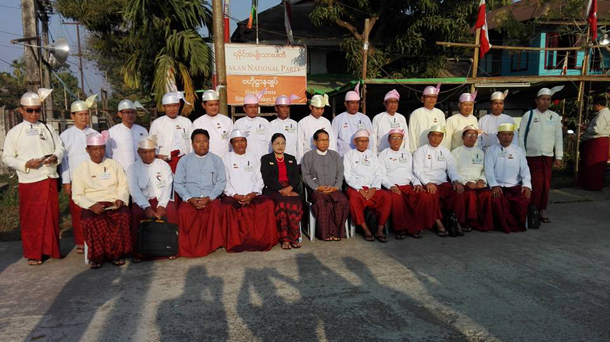RANGOON – Seven Arakan National Party (ANP) central executive committee members held a press conference on Sunday in Rangoon to highlight their dissatisfaction with recent actions of their party.
ANP Lower House lawmaker Ba Shein, who was not at the press conference but spoke out in support of it, attributed the group’s internal divisions to emotional volatility within the leadership, and urged them to instead engage in dialogue to overcome differences.
He cited the conference’s purpose as “to unveil to the public the reality of the ANP.”
After winning a majority of seats in the Arakan State parliament in the 2015 general election, in January 2016 the party declared that it would not join any coalition with the country’s overall winner, the National League for Democracy (NLD). Rather, the ANP stated that it would stand as an opposition party unless it was allowed to form its own state government.
ANP vice chairperson Phoe Minn accused those who hosted the press conference of pushing for the disintegration of the party. He pointed out that although the ANP’s statement on self-government had been public for two months, no official objections had previously been voiced.
According to official party procedure, the ANP will hold an investigation into the actions of the members who organized the press conference.
“Our citizens will decide who was right or wrong,” Phoe Minn said.
Others outside of the ANP have recently criticized what they see as apparent disunity within the ethnic Arakanese party. Voters are frustrated by the formation of divisions so soon after the election. “The ink on my pinkie isn’t even gone,” wrote one individual on an online forum.
Several of the members who organized Sunday’s press conference were once members from the Arakan League for Democracy (ALD), which later merged with the Rakhine Nationalities Development Party (RNDP) in 2014 to form the ANP in hopes of consolidating votes in the 2015 legislative election. The party was able to secure 45 out of the 77 state parliament seats it contested.
Success within the state parliament was once viewed as an important step toward the party’s goal of getting an ANP parliament member appointed as the state’s chief minister.

















